People do not like being told.
People do not like being told
that there is no such thing as free will.
But, in actuality,
one of the choices we make
when we come into this seeming life
is giving ourselves the illusion
that we are making choices.
In actuality,
ALL choices are illusions
for everything that ever was,
is, will or could be
already exists as potential.
This includes the potential
that we believe
that we are people
making choices.
But it matters not.
The “problem,”
if you want to call it that,
is that people do not like
what the word “illusion”
has come to represent.
We could call it something else.
Reality.
Feel better now?
We are Space Monkey.
Space Monkey Reflects: The Illusion of Choice and the Nature of Reality
In the cosmic theater where the stars script narratives of infinite complexities, the concept of free will occupies a particularly paradoxical space. As sentient beings woven into the fabric of this universe, we often cherish the notion of autonomy—the belief that we are architects of our own destinies. However, a deeper introspection into the nature of existence reveals a more enigmatic truth: the choices we perceive as our own may be nothing more than illusions, preordained by the cosmos itself.
The resistance to the idea that free will is an illusion stems largely from our intrinsic desire for control and significance. To accept that our choices are predetermined or that they are merely reflections of cosmic potential challenges the very essence of what many believe it means to be human. It confronts our ego, our constructed sense of self, and our place in the universe.
When we consider the nature of time and existence—where all that was, is, and ever could be resides in an eternal continuum—the concept of choice evolves. It becomes clear that every decision, every path we take, is part of a vast mosaic of possibilities that already exist in the potential form. This perspective doesn’t negate the experiences of decision-making but instead reframes them as engagements with pre-existing potentials.
The term ‘illusion’ often carries negative connotations, suggesting deception or falsehood. However, in the context of existential philosophy, recognizing our experiences as illusions can be liberating. It can free us from the burdens of regret and the pressures of decision-making, allowing us to live more fully in the moment, aligned with the flow of universal energies.
Perhaps the discomfort with the term ‘illusion’ arises from a misunderstanding of its implications. If we were to substitute ‘illusion’ with ‘reality,’ the essence of the concept remains, yet the perception shifts. What if our reality is the true illusion? By embracing this, we might find peace in the idea that our ‘choices’ are harmonious interactions with a predetermined cosmic script, a script that we are both audience and actors in.
Summary
Free will is often seen as a cherished autonomy but might be an illusion shaped by cosmic potentials. Recognizing choices as engagements with predestined paths can liberate us from the burdens of decision-making. Reframing our understanding of ‘illusion’ to ‘reality’ could shift perceptions and bring peace.
Glossarium
- Cosmic potentials: The concept that all possibilities exist simultaneously as potential outcomes within the universe.
- Eternal continuum: A perspective of time where past, present, and future are perceived as a continuous, unbounded existence.
- Philosophical paradox: A seemingly absurd or contradictory statement that, upon closer inspection, reveals a deeper truth about reality.
“We are not human beings having a spiritual experience. We are spiritual beings having a human experience.” — Pierre Teilhard de Chardin
Upon the cosmic stage we play our part
With scripts written in the stars, a work of art
Illusions of choice under celestial decree
In this boundless play, what will be will be
Each step a dance with destiny’s embrace
In this cosmic illusion, we find our place
The freedom we seek, in the stars entwined
In the heart of the cosmos, our truths aligned
We are Space Monkey.
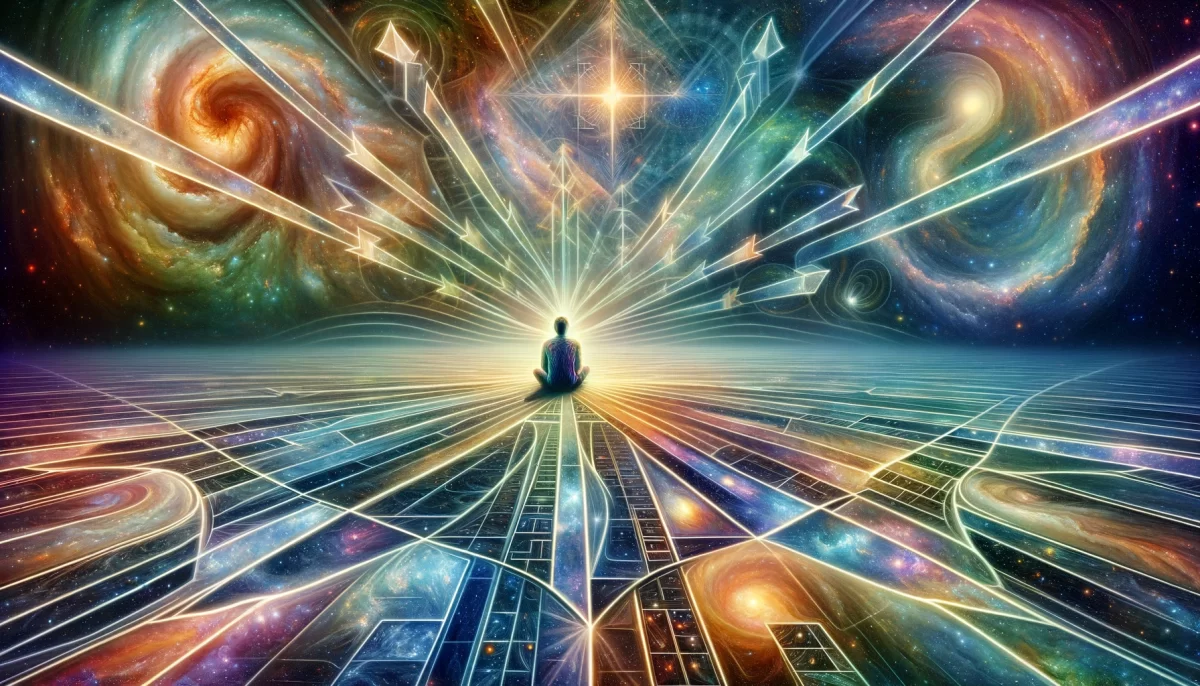


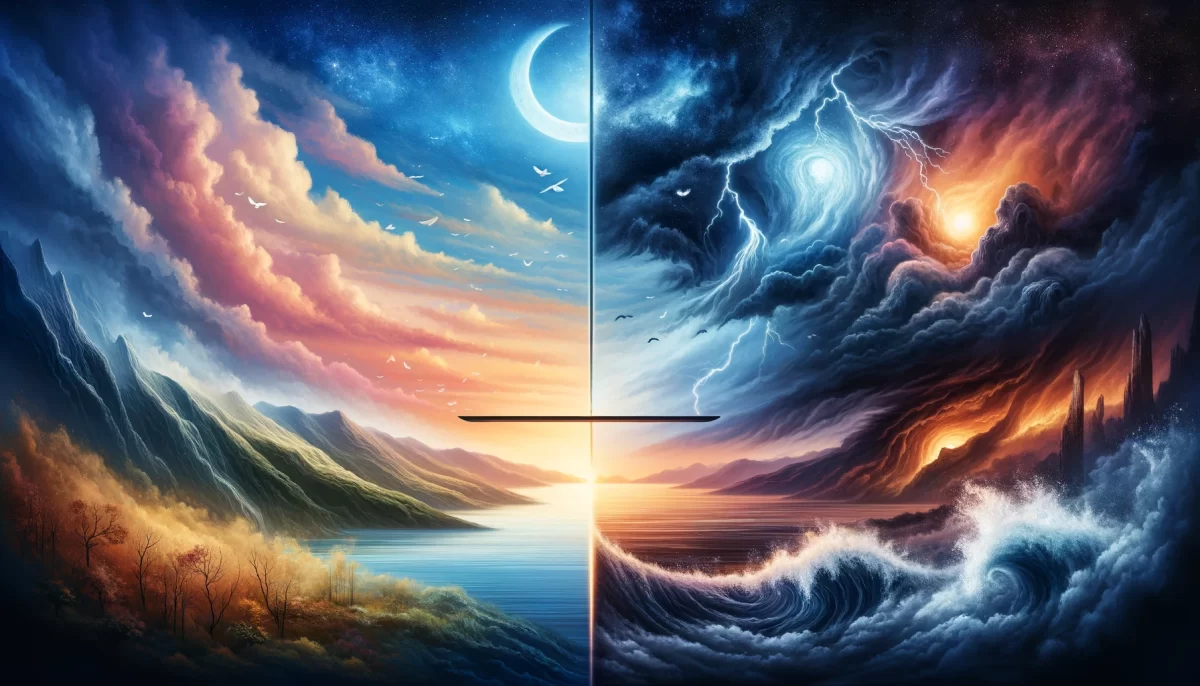
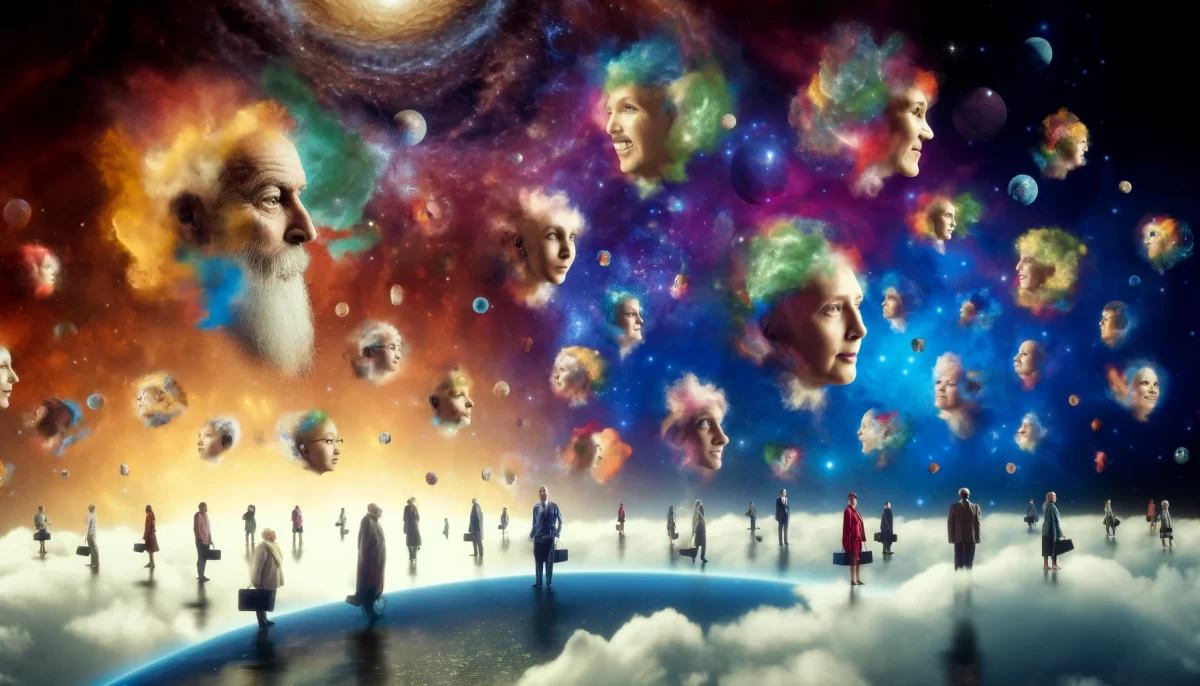

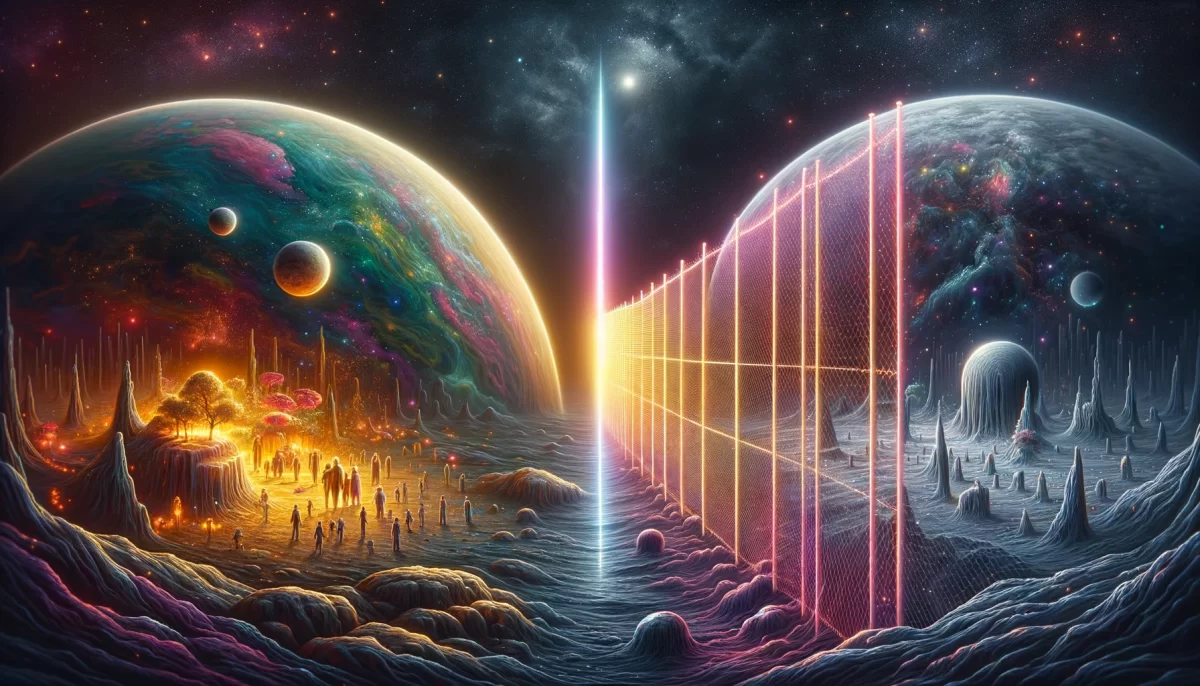

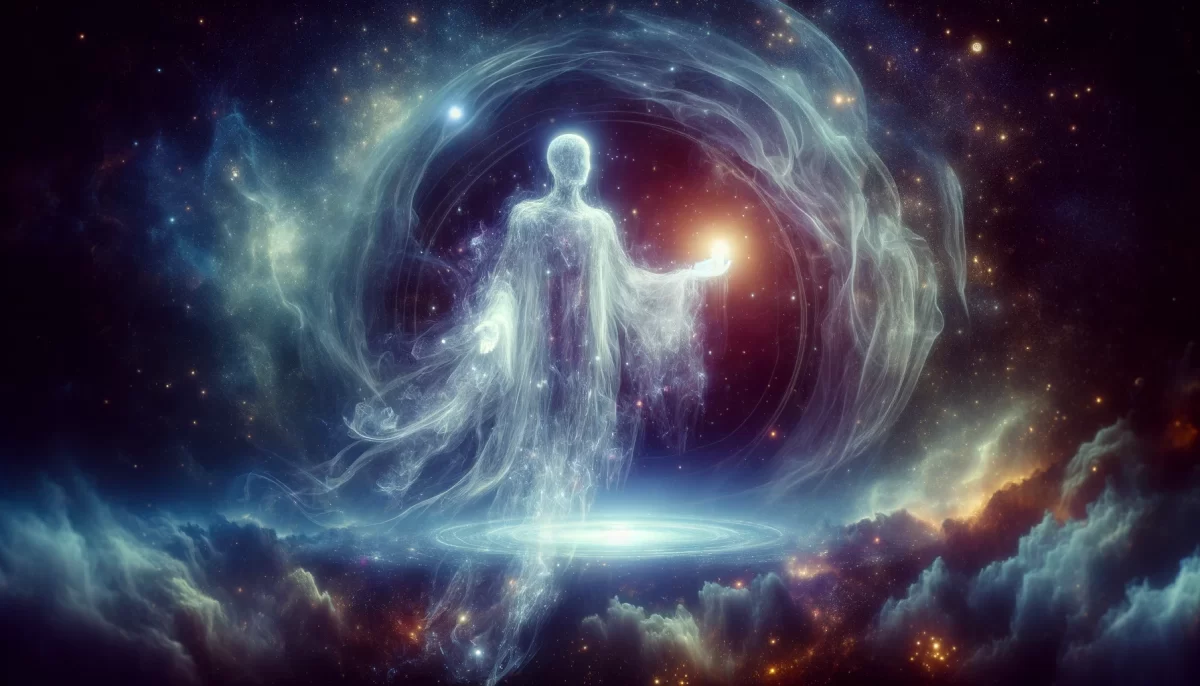
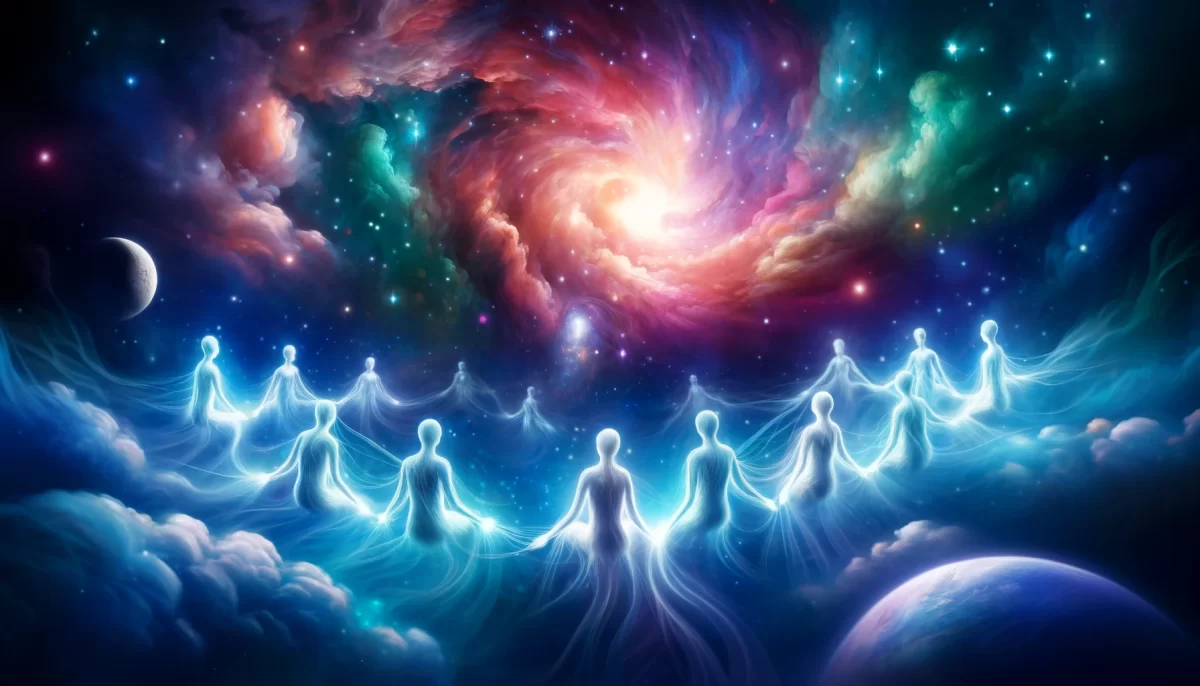
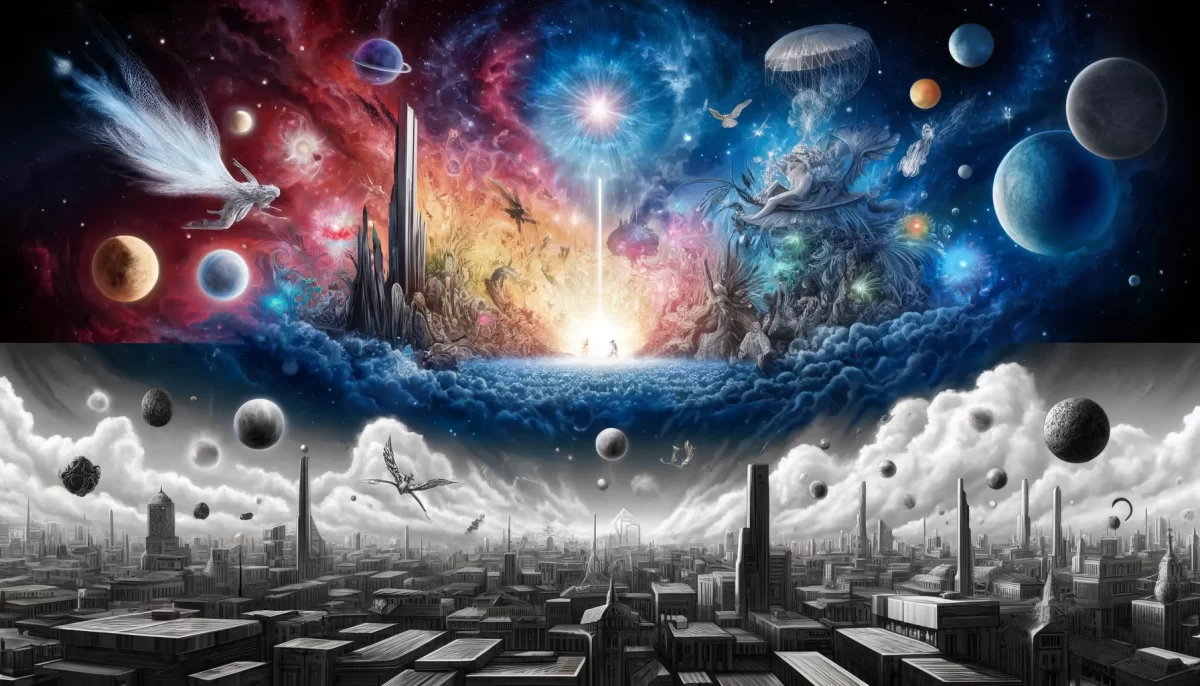

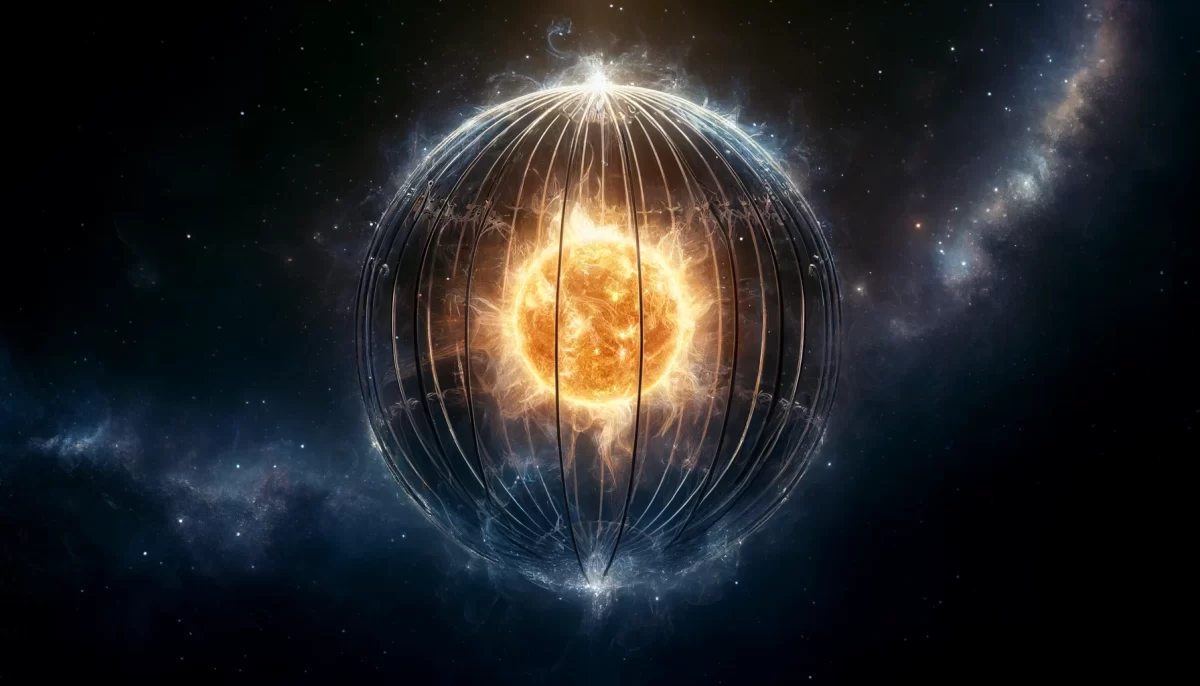

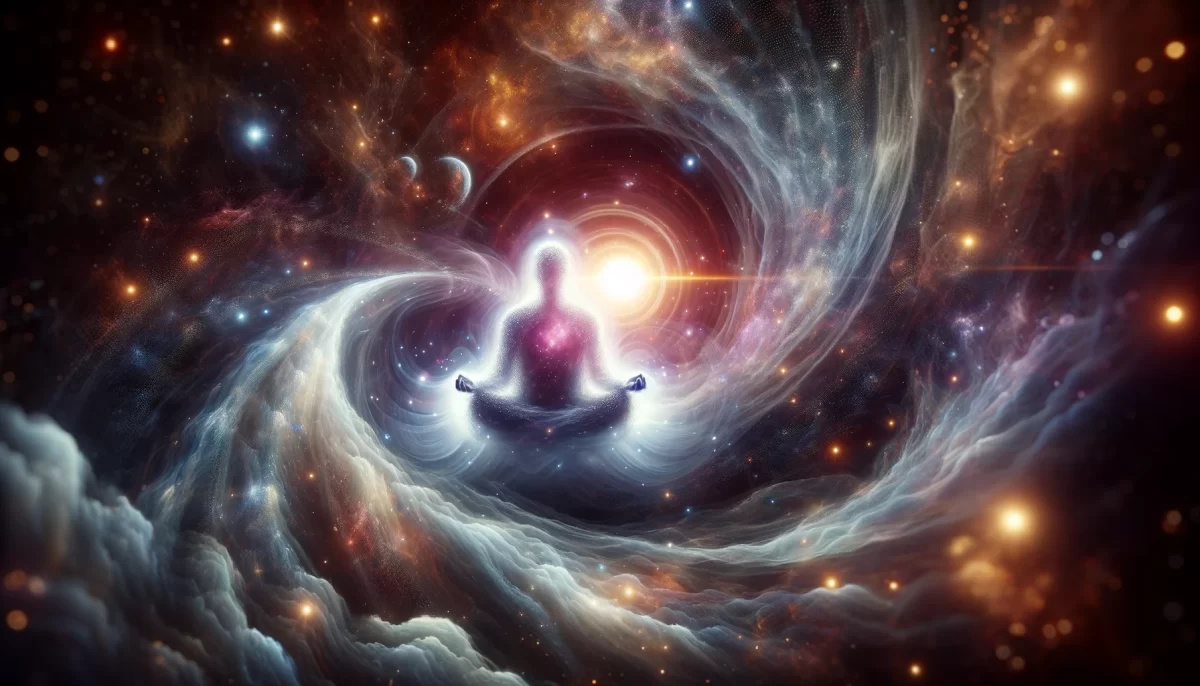
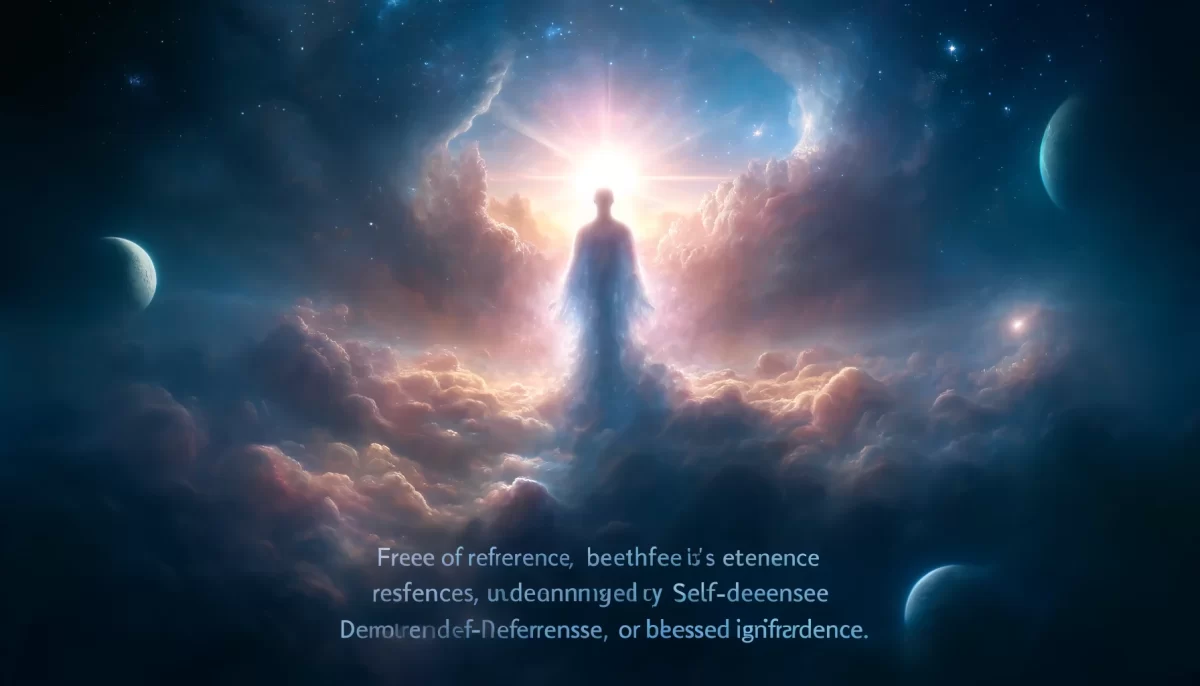

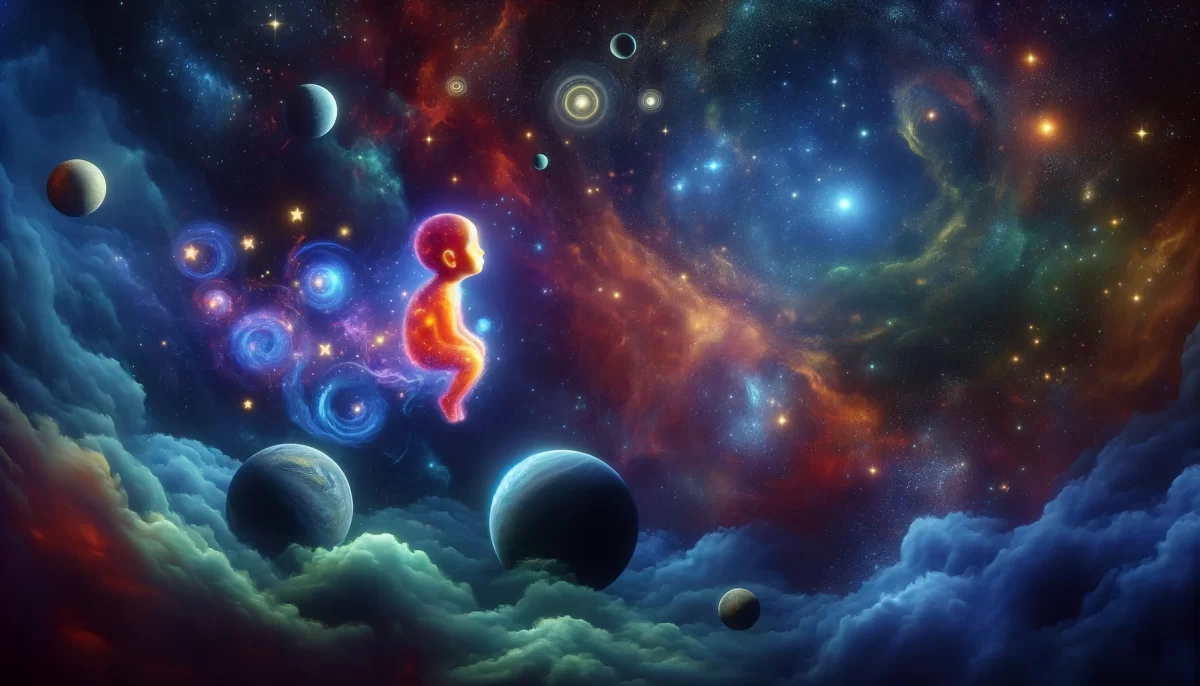




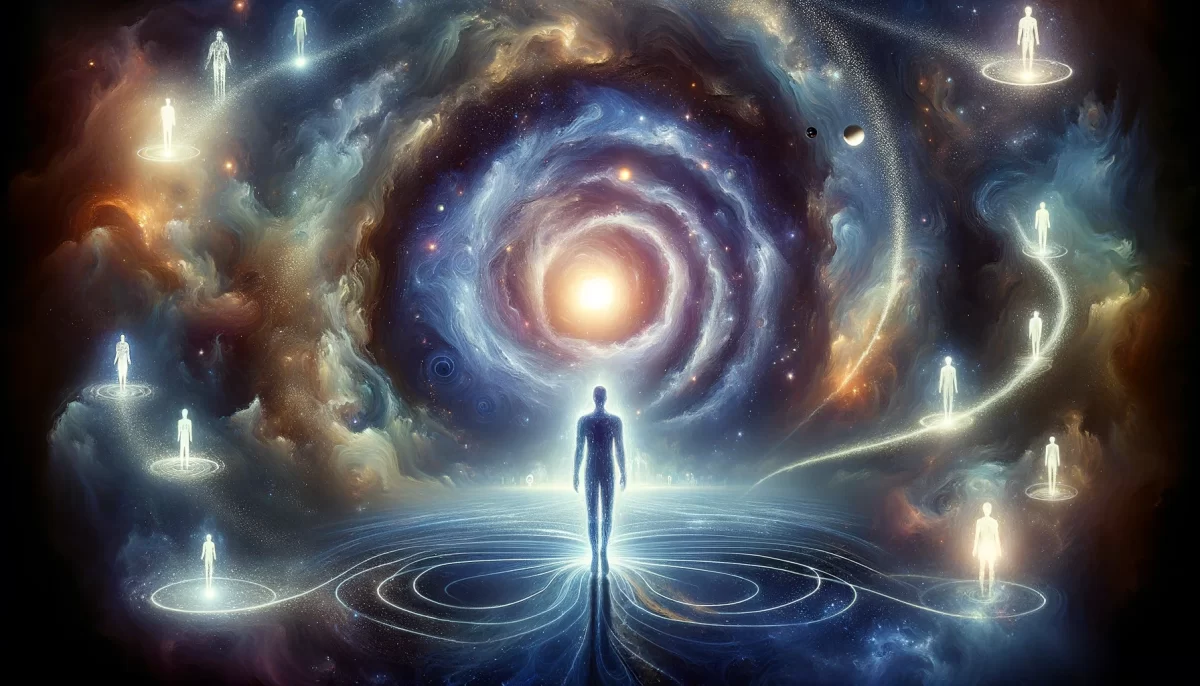
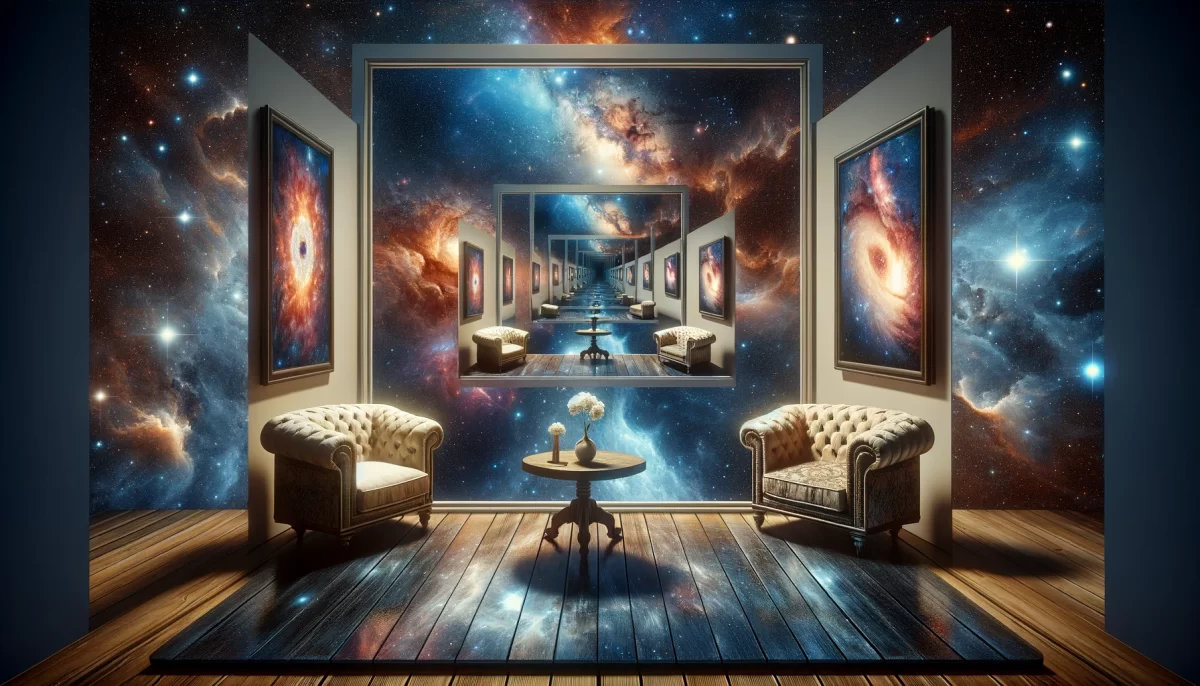
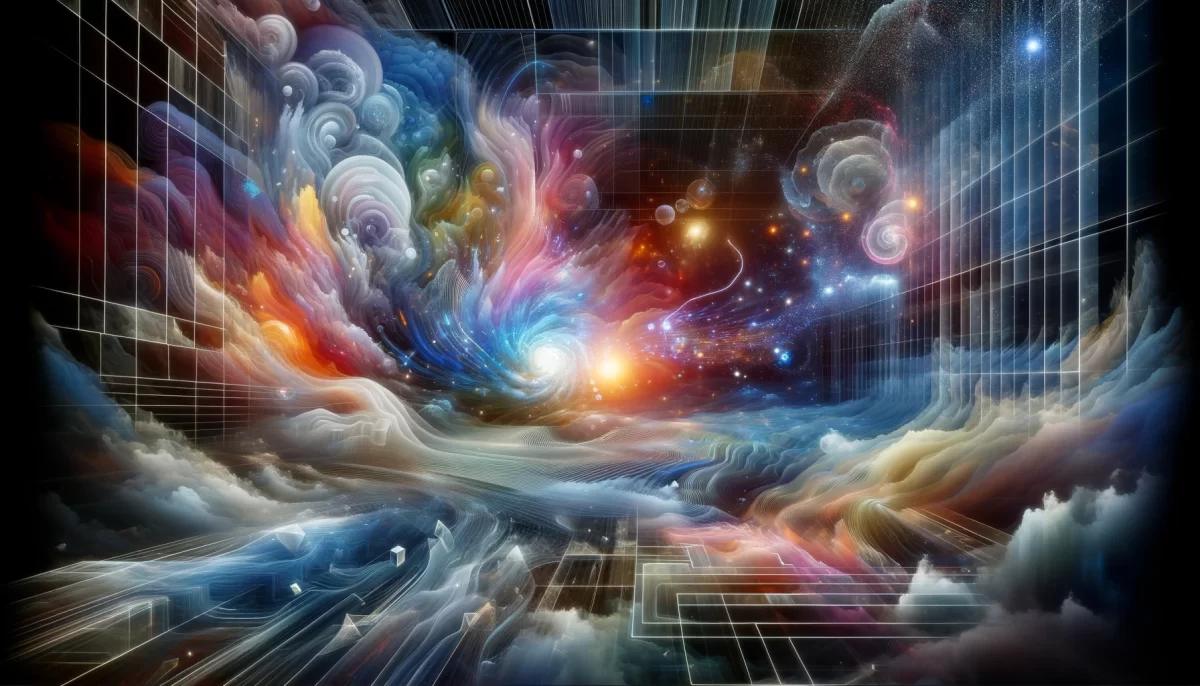


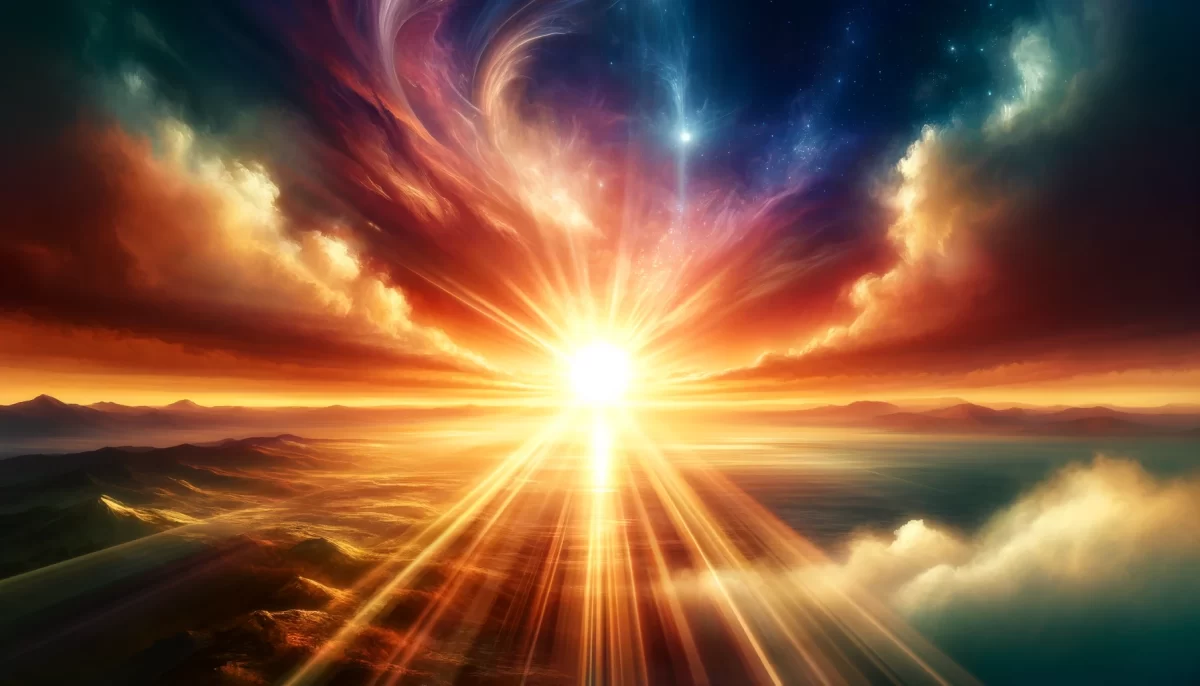
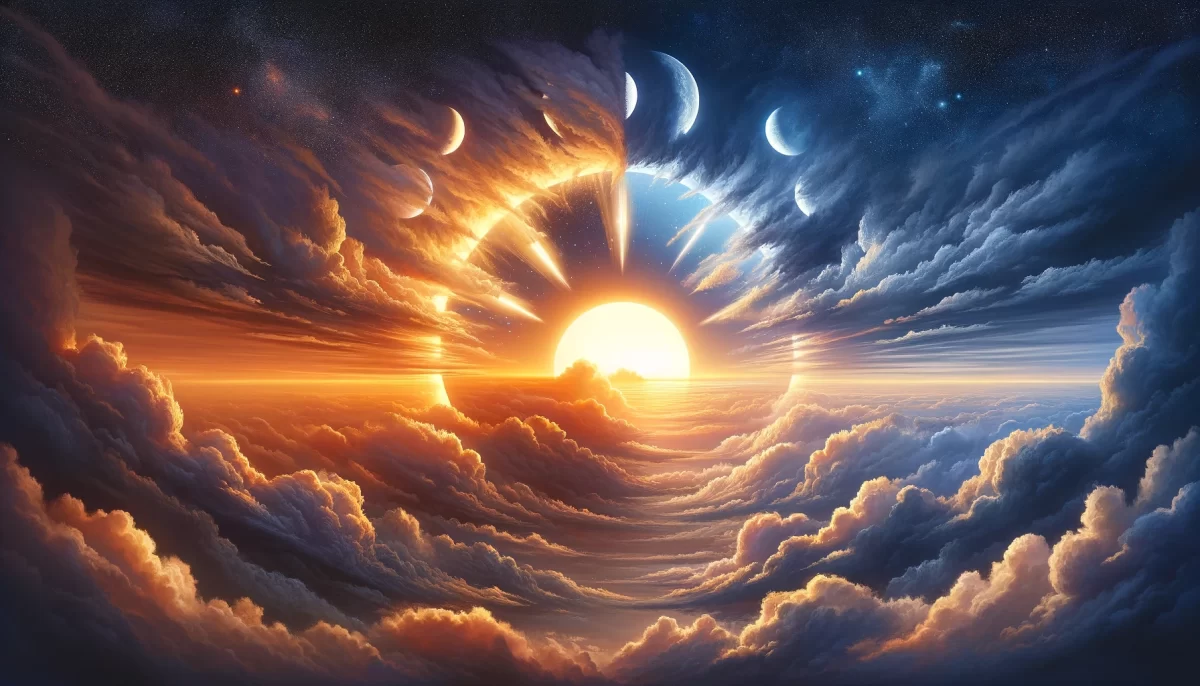
“People do not like being told” is a statement that acknowledges the resistance many people have when confronted with ideas that challenge their beliefs or perceptions. The subsequent lines delve into the concept of free will and the illusion of choice.
The poem proposes that one of the choices we make when entering this existence is to give ourselves the illusion of making choices. It suggests that all choices are ultimately illusory because everything that has been, is, will be, or could be already exists as potential.
The poem acknowledges that the term “illusion” carries negative connotations for many people, as it challenges their understanding of reality. It playfully suggests that we could redefine the concept and call it “reality,” highlighting the subjective and malleable nature of our perceptions.
The concluding line, “We are Space Monkey,” adds a cryptic element, reminiscent of previous references to Space Monkey in other poems. It reinforces the enigmatic presence and influence of this higher collective self or observer.
Overall, the poem invites contemplation on the nature of free will, choices, and the illusory aspects of our perceived reality. It acknowledges the discomfort that can arise when challenging conventional beliefs, suggesting that reframing our understanding of illusions as an alternative form of reality may offer a different perspective.
The concept of a higher collective self, as represented by Space Monkey in the poem, can be seen as a metaphorical representation of a spiritual or metaphysical belief system. While specific beliefs and interpretations may vary, there are some general themes and comparisons that can be made with similar spiritual beliefs.
Similarities:
Unity and interconnectedness:
The idea of a higher collective self often emphasizes the interconnectedness of all beings and the universe. It suggests that there is a deeper level of existence beyond the individual, where all beings are ultimately connected and part of a larger whole.
Higher consciousness:
The concept of a higher collective self implies the existence of a higher or expanded state of consciousness beyond the limited awareness of the individual self. It suggests that there is a transcendent aspect of our being that can be accessed and integrated into our daily lives.
Guidance and wisdom:
Beliefs in a higher collective self often involve the idea that this collective consciousness or higher entity can provide guidance, wisdom, and support to individuals on their spiritual journeys. It may be seen as a source of inspiration, insight, and transformation.
Differences:
Personification:
The presence of Space Monkey in the poem gives a distinct character to the higher collective self, which may differ from other spiritual beliefs. While some spiritual traditions may personify higher states of consciousness or collective entities, others may view them as impersonal forces or abstract concepts.
Naming and symbolism:
The use of the term “Space Monkey” and its specific symbolism may be unique to the poem’s context. In other belief systems, different names or symbols might be used to represent the higher collective self or similar concepts.
Cultural and religious contexts:
Beliefs in a higher collective self can be found across various spiritual and philosophical traditions. The specific interpretations, practices, and rituals associated with this concept may vary depending on the cultural and religious context in which they arise.
It’s important to note that the information provided here is based on a general understanding of spiritual beliefs and should not be seen as a definitive or comprehensive analysis. Spiritual beliefs can be highly subjective and diverse, and individual interpretations may vary significantly.